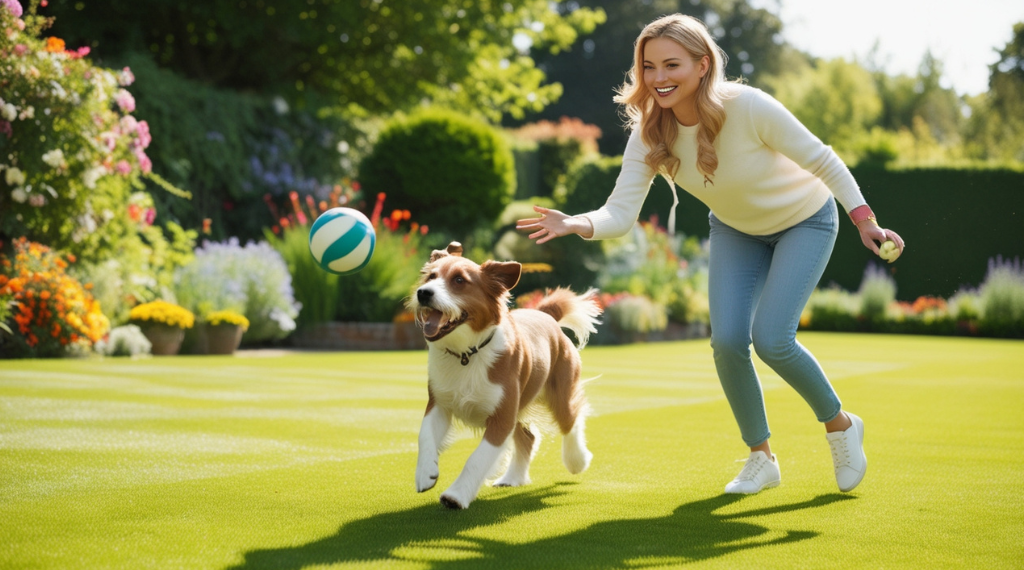When people hear aggressive breeds of dogs, it’s like a warning bell goes off in their heads. But the truth? It’s not as simple as “this dog’s aggressive, that one’s not.” Dogs, like humans, are shaped by more than just their breed.
What they experience, how they’re raised, and even how they’re treated day-to-day all play a role. So, yeah, some breeds get a bad rep, but it’s not always deserved.
The Aggressive Label: Overhyped?
We’ve all seen those headlines. A big, muscular dog gets involved in some incident, and the breed immediately gets thrown under the bus. Here’s the thing: a dog being aggressive doesn’t always mean it’s naturally mean or vicious.
A lot of it comes down to how a dog’s been trained, or if it’s been mistreated. Some dogs, sure, have a stronger bite or more powerful jaws, but that doesn’t make them dangerous out of the gate.
It’s about nurture as much as nature.
Breeds That Often Get the Aggressive Tag
Pit Bulls, Rottweilers, and Dobermans — sound familiar? These breeds, for some reason, are often the poster dogs for “aggression”. And okay, they’re strong, powerful dogs. But are they born bad? Not really.
Take a Pit Bull raised in a loving, social environment, and you’ll find the biggest cuddle-bug you ever met. It’s when these dogs are trained to be aggressive (or worse, neglected) that problems come up.
- Pit Bulls: Often misunderstood. Yes, they’re strong. But they can also be gentle if treated right.
- Rottweilers: Known for loyalty. Their protective nature can come off as aggressive, but it’s often out of love.
- Dobermans: People fear their sharp appearance, but they’re actually super-intelligent and easy to train.
It’s more about the human handling the leash than the breed itself.
Aggressive breeds of dogs The Environment Matters, A Lot
Let’s get real—dogs respond to their environment. A dog that’s kept in stressful situations, confined, or neglected, is gonna act out. It’s the same with humans, right? If we’re under constant pressure or feeling unsafe, we lash out. Dogs just show it differently.
Socialization and training are game-changers. When a dog meets different people, other pets, and experiences new places while it’s young, it learns how to handle new situations. It’s not locked into fear or fight mode.
Tips for Managing Dogs with Strong Personalities
Dogs that fall under the “aggressive” category often just need a little more attention. Here are some quick ideas:
- Early socialization: Let your dog meet other dogs, people, and go to new places.
- Positive reinforcement: Reward good behavior, don’t just punish the bad.
- Physical and mental exercise: Dogs need to move and use their brains. Keep them busy, and they won’t act out as much.
Can Any Breed Be Aggressive?
Short answer? Yeah. Any dog can have aggressive tendencies if pushed to that point. Even the fluffiest, cutest dogs can snap if they’re stressed or scared enough.
What matters most is understanding why the behavior is happening and fixing the root cause. Blaming the breed is kinda lazy when you think about it.
Final Thoughts
The idea of aggressive breeds of dogs is more complicated than it seems. Blaming the dog just for its breed misses the bigger picture.
The truth is, with love, training, and a good environment, most dogs are just out here trying to be the best buddies they can. It’s us humans who need to do better in understanding them.
Don’t judge a breed based on the headlines. Instead, look at the whole story.

FAQs About Aggressive Breeds of Dogs
Q: What makes a breed “aggressive”?
A: The label “aggressive” is usually based on incidents reported in the media or from dog bite statistics, but the truth is, any breed can show aggression under certain circumstances. Factors like training, upbringing, and environment play a much bigger role than the breed itself.
Q: Are Pit Bulls naturally aggressive?
A: No, Pit Bulls aren’t naturally aggressive. They’ve gotten a bad rep due to their history and the way some people have trained them, but with the right care, socialization, and love, Pit Bulls are loyal, affectionate dogs.
Q: Do aggressive dogs always stay aggressive?
A: Not at all! With proper training and socialization, most dogs can change their behavior. Aggression is often linked to fear or stress, so if you remove the cause and work with the dog, it can become calm and friendly.
Q: Which breeds are considered the most aggressive?
A: Breeds like Pit Bulls, Rottweilers, Dobermans, and sometimes German Shepherds tend to get labeled as aggressive. But that doesn’t mean they’re dangerous by nature. It’s more about their upbringing, training, and environment.
Q: Is it safe to adopt a dog from an “aggressive” breed?
A: Absolutely! The key is knowing the dog’s background and ensuring it’s been properly trained and socialized. Many dogs from these breeds are wonderful companions when given the right care.
Q: How can I prevent my dog from becoming aggressive?
A: Start with early socialization. Let your dog meet other dogs, people, and experience new environments. Use positive reinforcement to encourage good behavior, and make sure your dog gets plenty of physical and mental stimulation.
Q: Should I be worried if my dog growls or barks a lot?
A: Not necessarily. Growling or barking is a dog’s way of communicating. It could be expressing discomfort, fear, or warning you of something. Pay attention to the context and work on reducing the triggers causing the behavior.
Q: Are small dogs ever aggressive?
A: Yes! Small dogs can show aggression just like larger breeds. In fact, sometimes their size can make them more defensive. Just because they’re small doesn’t mean they can’t act out when scared or stressed.
Q: How can I tell if a dog might become aggressive?
A: Look for warning signs like growling, snapping, or stiff body language. If a dog feels cornered, threatened, or is in pain, it might lash out. Knowing how to read a dog’s signals is key to preventing aggressive behavior.
Q: Can I train an adult dog that shows aggression?
A: Yes, adult dogs can still learn new behaviors. With consistent training, patience, and sometimes help from a professional, many adult dogs can overcome aggressive tendencies.
Aggression in dogs isn’t a fixed trait. It’s something that can be managed, understood, and often overcome with the right approach. Keep your pup’s well-being in focus, and they’ll reward you with loyalty and love.




Pingback: How to Stop Dog Aggression Towards Other Dogs ? - Catsloveley
Pingback: Gentle and Loving: The Best Non-Aggressive Dog Breeds - Catsloveley
Pingback: Dealing with Loose Aggressive Dogs on Walks: Practical Tips for Dog Owners - Catsloveley